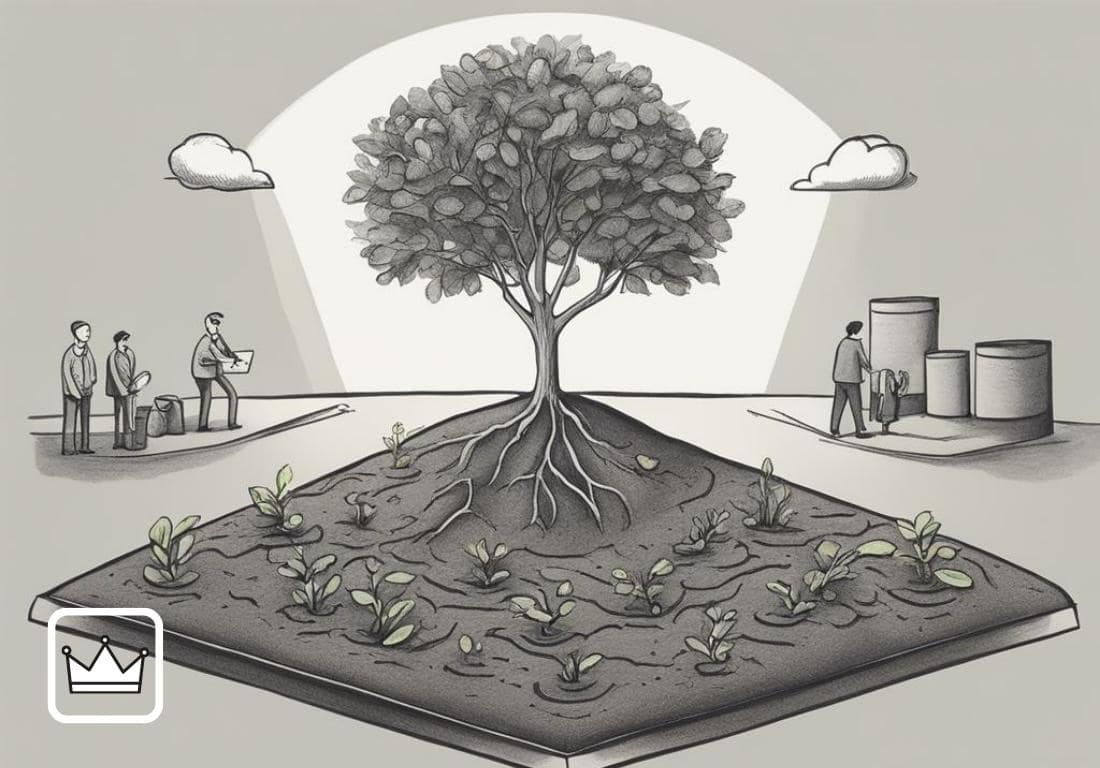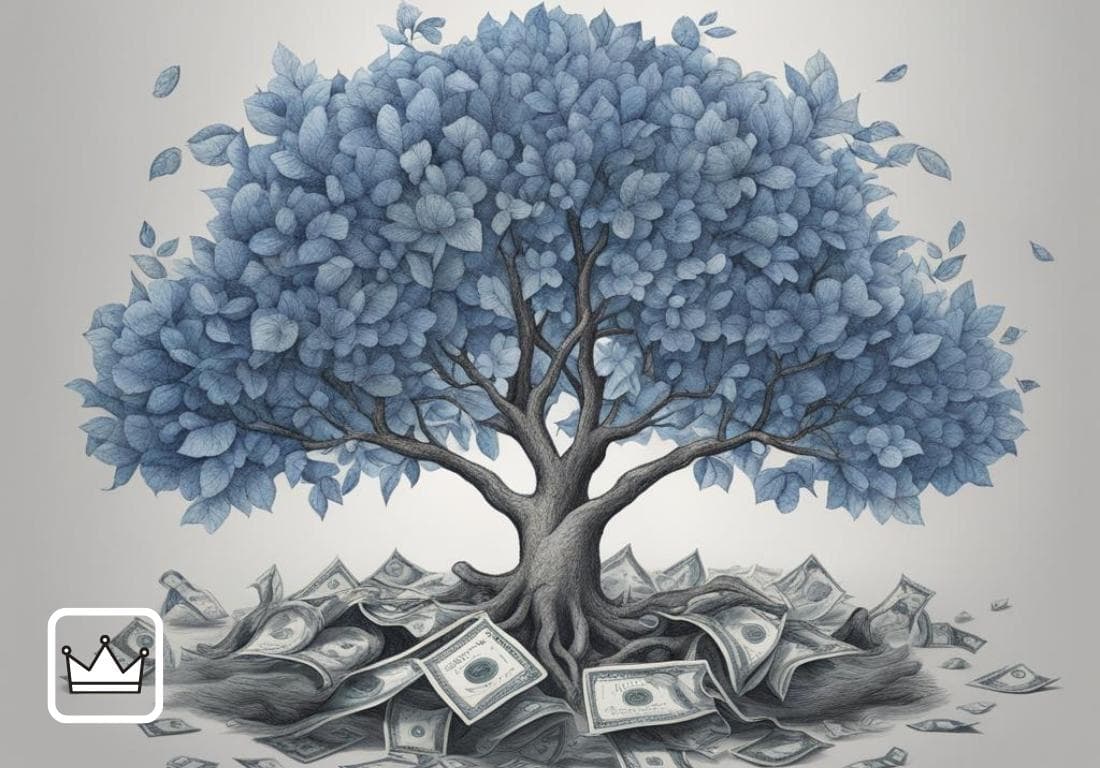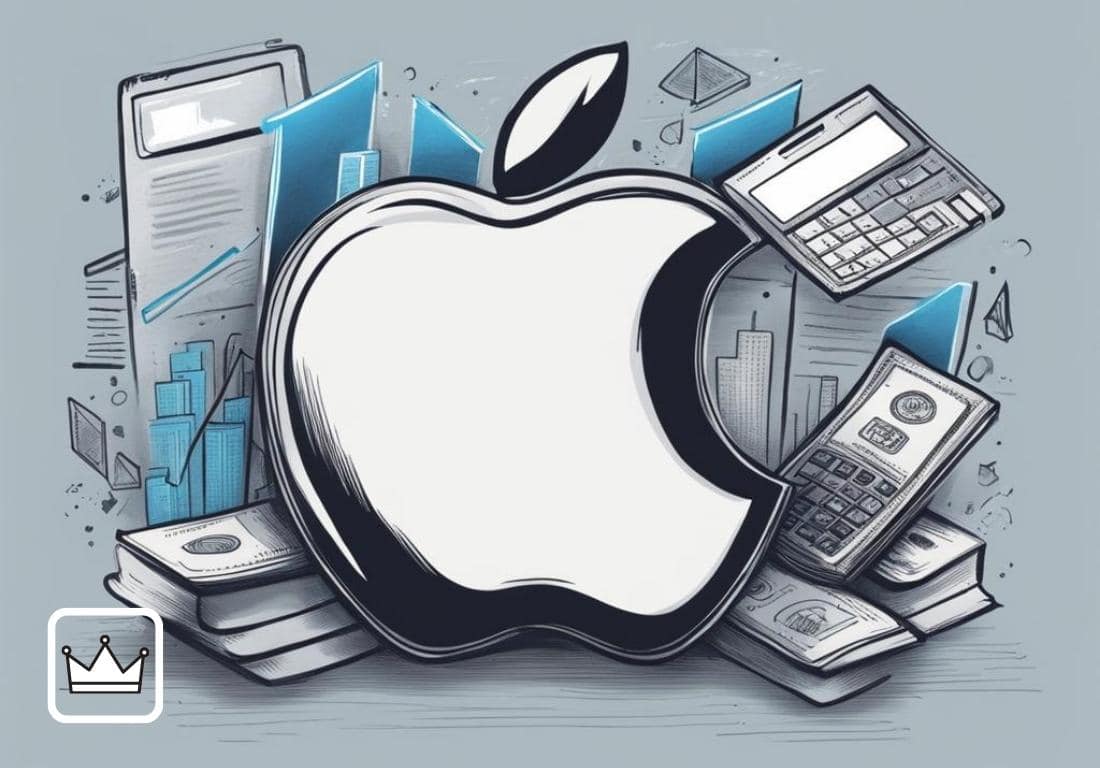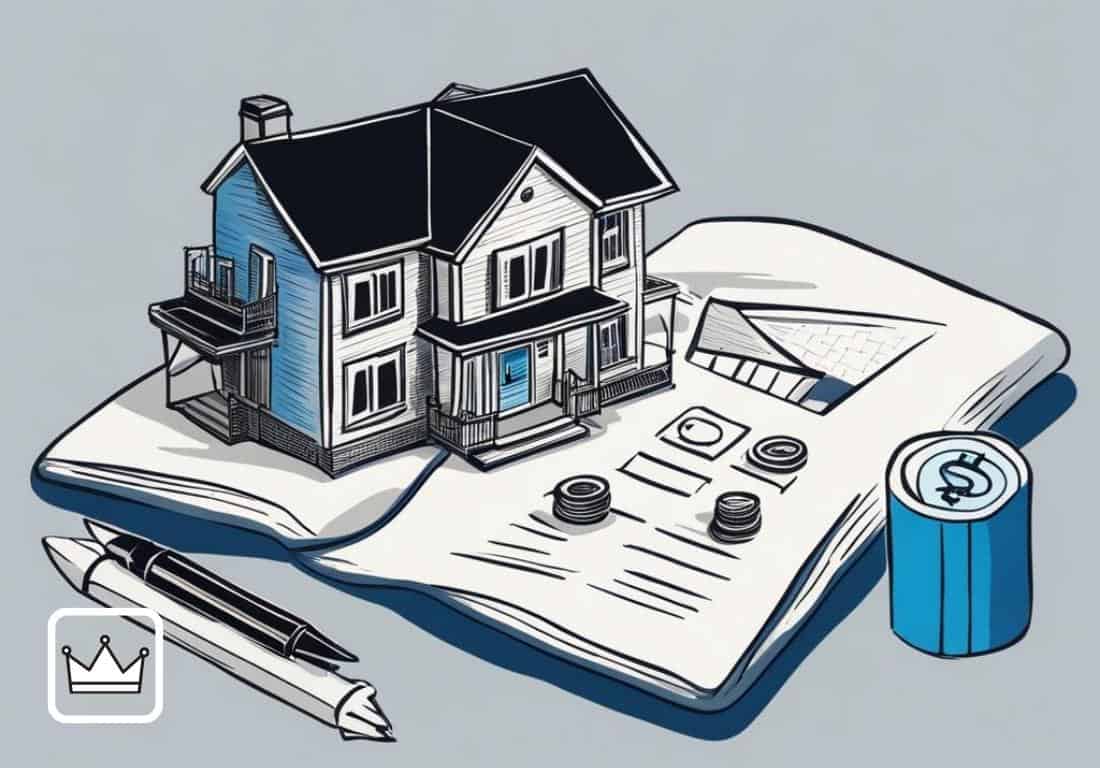Learn the secret strategies rich people use to use debt to make money. In this article, discover 6 ways to use debt to make money just like the rich do with the 6 proven strategies.
- How do the rich stay rich?
- Comparison of Debt Strategies: Normal vs. Rich People
- Debt Strategies: Normal vs. Rich People: Overview
- Ways Wealthiest People Use Debt To Make Money and avoid taxes
- 1. Tax Avoidance
- 2. Leverage
- 3. Shorting
- 4. Business Debt
- 5. Buy Real Estate with a Mortgage
- 6. Free Up Money to Invest
- Conclusion
Debt is a universal part of modern life and the economy, and it can be used for either the better or the worse. Although most people only recognize “bad debt”–or debts which come with high-interest rates and incur substantial costs over many years or even decades, such as student loans, credit card payments, and car loans–debt can also be used to one’s advantage.
How do the rich stay rich?

The Chinese proverb “Happy is the man with no sickness, rich is a man with no debts” may appear true on its face, but in reality, the judicious use of debt empowers wise financial planning. Therefore, understanding the various nuances of debt is integral in today’s world.
For a clearer abstraction of the financial benefits of debt, it is crucial to assess how people with wealth and those without utilize this tool. For most, debt is a means of buying what can’t be paid for upfront, such as a car or house, and it takes them years or even decades until the full cost is met.
For those who have amassed much money, though, debt serves as a powerful tool enabling them to build something greater than they could alone or accomplish goals faster. By using debt, the wealthy are granted an additional reservoir – to develop and expand upon their ambitions.
Comparison of Debt Strategies: Normal vs. Rich People
1. Tax Avoidance
- Normal People: Pay taxes on asset sales (capital gains tax)
- Rich People: Borrow against assets to avoid capital gains tax (“Buy, Borrow, and Die”)
2. Leverage
- Normal People: Invest with own money, limited potential return
- Rich People: Use debt to amplify investment, increase potential return (but higher risk)
3. Shorting
- Normal People: Typically avoid due to unlimited loss potential
- Rich People: Use shorting to profit from declining stock values (high risk/reward)
4. Business Debt
- Normal People: Rely on savings or profits for business growth
- Rich People: Use debt strategically for faster business expansion and growth
5. Buy Real Estate with a Mortgage
- Normal People: Save to buy property outright, limited by cash on hand
- Rich People: Use mortgages to control larger properties, benefit from rental income and appreciation
6. Free Up Money to Invest
- Normal People: Often pay upfront for large purchases
- Rich People: Finance purchases at low interest, invest the cash for higher returns
Key Takeaway
While normal people may see debt as a liability, wealthy individuals often view and use debt as a tool to expand wealth, minimize tax liabilities, and leverage opportunities for greater financial gain.
Debt Strategies: Normal vs. Rich People: Overview
| Strategy | Normal People Do | Rich People Do |
|---|---|---|
| Tax Avoidance | Pay taxes on asset sales | Borrow against assets to avoid taxes |
| Leverage | Invest with own money, limited return | Use debt to amplify investments |
| Shorting | Avoid due to risk | Short sell for profit on declining values |
| Business Debt | Use savings for business growth | Borrow for faster expansion |
| Real Estate with Mortgage | Buy property outright when possible | Use mortgages to control larger property |
| Free Up Money to Invest | Pay upfront for large purchases | Finance purchases, invest the cash |
Ways Wealthiest People Use Debt To Make Money and avoid taxes
Here are the 6 ways rich people use debt to make money.
Read also: 14 Strategic Ways To Use Debt To Build Wealth
1. Tax Avoidance

Wealthy individuals use loans against their assets to fund their lifestyles and avoid taxes through strategies like “Buy, Borrow, and Die,” passing on appreciated assets without tax consequences.
Wealthy individuals frequently utilize debt to evade income taxes. When they seek to save for retirement, they typically allow their resources to increase in value and, once they have accumulated a sufficient sum of money, gradually dispose of their possessions or use the earnings of these assets to finance their desired lifestyle.
However, this process also necessitates payment of tax on the money gained. On the other hand, if real estate or stocks are bought and sold when one is retiring, capital gains tax must be paid as well. Let’s take, for example, someone who has toiled hard and now holds a $30 million real estate portfolio—they may be ready to settle down and savor the rewards of their efforts.
How do rich people avoid taxes?

“Rich individuals often use the strategy known as “Buy, Borrow, and Die” to avoid taxes, where they purchase assets, take loans against them instead of selling, and benefit from the step-up basis which resets the value of the asset upon inheritance, thus avoiding capital gains taxes. ”
If you sell a property for a 10-million-dollar profit to fund your retirement, it would trigger a 2.3-million-dollar federal income tax as ” capital gains tax” on the federal government, plus an additional 1.3 million dollars in state taxes for California residents. This means that 3,754,365 dollars of your total profits would be given away in taxes; bringing your 10 million dollars gain down to 6.2 million dollars – that’s nearly 40 percent!
It’s no wonder that as an investor you’d want to avoid such hefty taxes – so instead of selling the property and giving up a huge chunk of your earnings, why not consider taking out a loan with the real estate portfolio worth 30 million dollars as collateral? Debt is not seen as income, – meaning this money won’t be taxed!
If you borrow money, you will have a responsibility to pay – it back. However, the wealthy have access to a unique loophole known as the ‘Step-up Basis’ that enables them to avoid paying capital gain taxes when they sell their assets. Generally, if an asset grows in value and is sold, the profits must be taxed; yet, if this rule is bypassed through the usage of a Step-up Basis, then when the assets are passed down to their children the cost basis of the asset is updated – so that it equates with the current market value. In other words, no tax has to be paid.
Buying an asset and borrowing against it, essentially to finance your lifestyle, is a strategy known as — “Buy, Borrow, and Die”. When you eventually pass on the asset – typically at the time of your death – to, for example, your child, the value of the asset is increased. This increase in value is designated on a step-up basis and allows the individual receiving the asset to sell it without paying any taxes on the profit made.
For example, if you purchased a property for $100,000 and it has now grown to be worth $400,000, the total gain would have been $300,000. However, should the person who inherits the property decide to sell, they will not have to pay any taxes –because there was no progress under their ownership.
Taking advantage of this tactic is an excellent manner to – not only dodge taxes but also increase the capital in your pocket. Rather than selling off your assets to support your expenses, you can simply borrow from them–meaning that as they continue to appreciate over time, you will end up with extra money in the end.
2. Leverage

“Rich people sometimes don’t sell their assets like houses or stocks; they prefer to borrow against them, avoiding certain taxes. Upon their death, these assets gain value, and due to specific tax provisions, beneficiaries can sell them without paying capital gains tax.”
The second way that many wealthy people use debt to generate wealth is by leveraging their portfolios. By using debt, investors are able to increase the potential returns from their investments significantly. Statistics show that those who leverage their portfolios often double —or even triple their return on investment compared to those who do not.
For Example, Tom invested $100,000 into an investment portfolio that produced a 10% return on his initial investment, yielding him a total of $10,000 in profit. Concurrently, Jerry applied leverage to his account, investing $100,000 of his own money and putting a further $35,000 in debt against the same portfolio.
Overall, this allowed Jerry to have a portfolio value of $135,000 with a 10% yearly return – yielding him $13,500 in total profit for a 13.5% return on investment – which is 3.5% higher than what Tom earned without applying leverage.
This method of leverage may have the potential to generate higher returns, however, it carries an increased risk. To illustrate this further, let us assume the market experiences a decline of 10%, rather than an increase. Tom would then face –a loss of $10,000, whereas Jerry would sustain a greater loss of $13,000 due to their proportionately larger initial portfolio.
Despite raising the stakes, leveraging is a popular tool for many sophisticated investors and hedge funds to bolster their long-term profits. Nevertheless, that does not mean debt cannot be utilized as a means of making money — even in circumstances where markets dip.
3. Shorting

“Rich people borrow a company’s stock, sell it high, and if the stock price falls, they buy it back at a lower price, keeping the profit.”
Investors can benefit from a strategy called shorting, where rather than borrowing money, they borrow stock from a brokerage firm. For example, an investor may believe that Company X’s value will diminish in the future so they borrow one share at its current worth of $100 and immediately sell it in the open market.
If their prediction is right, such as when a scandal causes Company X’s stocks to drop 85% – down to just $15 a share – the savvy investor can then buy back the stock and return it to the broker for the discounted price. By doing this, they keep the difference between the sale and buyback of the stock ($85) as profit after deducting interest earned from borrowing the stock.
According to reports, exceeding $13 billion was lost by investors and institutions, for instance, hedge funds, due to the GameStop debacle. This is a prime example of how risky it can be too “short” a stock. In essence, this means investing money in hopes that stock prices will decrease, rather than increase. While the upside to investing in stocks is limited to one’s initial investment, the risk of shorting a stock is limitless.
With no cap on how much a single stock can soar —it is possible for an investor to end up losing exponentially more money than when initially sinking their funds into the market. This type of financial gamble is not for the faint of heart – and potentially serves as a reminder of how quickly markets can turn.
4. Business Debt

“Companies use debt to grow and succeed, like Apple did at the start, but it’s important to be smart about it and not borrow more than you can handle.”
Utilizing debt as a financial tool to kickstart or expedite business growth is commonplace. Businesses may use debt to support their development, such as to hire staff or expand their locations. Additionally, companies may use debt to acquire goods or credit that they do not have the resources available to purchase upfront.
For instance, Steve Jobs leveraged debt in order to launch Apple by selling 50 personal computing devices dubbed ‘Apple One’ to a computer store known as Bite Shop.
Despite being without the necessary parts to construct the computers and being in a state of financial uncertainty, Jobs was able to show — the shop’s purchase order and secured a loan from a computer parts company. Thereby, he made it possible to bring his vision for Apple to life.
For Apple to get its first major order in the 1970s, it had to use debt as a mechanism to finance it and make $25,000 (which is equal to around $115,000 today). Yet, debt used erroneously can be harmful to our financial well-being. That being said, it is not advisable for those with minimal business expertise to resort to taking on debt. Instead, successful businessman invests their time and resources in learning how to leverage debt effectively.
5. Buy Real Estate with a Mortgage

“Using a mortgage to buy real estate can grow your wealth, as you can own bigger properties and gain income from them, increasing your equity and reinvesting for more profit.”
For those seeking to expand their wealth, debt presents a powerful tool. Real estate is one of the most favored approaches, as it enables people to purchase bigger properties than they could typically afford if they had money on hand. An investor can capitalize on this opportunity by taking out a loan, allowing them to own the property and use it as a beneficial asset.
Not only do they profit from other people paying off the borrowed funds, but also gain equity and generate a steady flow of income in return. For those ready to commit and learn, there are additional techniques – to make the most of this financial opportunity.
how to use debt to make money in real estate
For example, opting to purchase a property for $300,000 and putting in a down payment of $40,000, we took out a loan for the remaining $260,000. Though initially not the most attractive of prospects, its great location, and the rising local market made it an alluring acquisition.
We decided to invest another $10,000 in refurbishments to transform it into a “more appealing asset”.
The area’s ascendency resulted in the property having a reassessment that increased its worth to $360,000. This allowed us to approach our bank and refinance, thus increasing our equity by $60,000 —or alternatively, cashing it out and investing in future projects that have the potential to generate further wealth.
6. Free Up Money to Invest

“Borrowing money at low interest to invest can earn more profit than the loan costs, like using a cheap loan to invest in stocks for higher returns.”
When it comes to utilizing debt to generate income, it can often be advantageous to finance items we want to purchase while interest rates remain low. It occasionally makes sense to take out a loan; for instance, if you intend to buy a car costing $50,000 and can secure that amount at a 2% annual rate of interest, financing the vehicle is likely more sensible than paying for it with cash.
By deploying your $50,000 into the stock market and seeing an average 10% return each year, you will potentially bring in more money from investments than you pay in interest.
If, for example, you secure a 5-year loan at 2%, the total cost after repayment should reach $52583.28. Yet, having invested the same amount over the course of 5 years, your balance should have grown to $80,525 — translating to nearly $28,000 in additional profit gained through borrowing!
Conclusion
Debt is often seen as a bad thing but for smart investors, it can be a powerful tool to make money. With a proper understanding of the tax laws and leveraging the power of compounding interest, intelligent investors can get a leg up on their financial journey. Debt can be an essential part of constructing wealth for those who understand how to use it responsibly. By maximizing the potential of debt, billionaires are capable of building lasting fortunes that ensure a lifetime of financial security.
Editors Pick These Recommended Article for You; Don’t Miss Out!
7 Best Countries To Start A Business In 2023
How To Register A Business In The USA: Complete Business Registration In 10 Steps
6 Businesses That Will Never Go Out Of Market: Industries That Will Never Go Away
6 Businesses That Never Fail Even In Recession [Backed By Data]











Leave a Reply